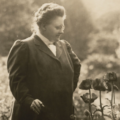Aging and Accomplishment in Sonnetville, New Jersey

Across four full-length collections, Craig Morgan Teicher has established himself as one of our finest poets on marriage and fatherhood. Beginning with 2007’s Brenda Is in the Room, and continuing through 2021’s excellent Welcome to Sonnetville, New Jersey, Teicher has tracked the evolving nature of his marriage to fellow-poet Brenda Shaughnessy and the birth and growth of their two children. His depiction of the ups and downs of these relationships becomes richer and richer throughout his development. As he wrote in the essay collection We Begin in Gladness: How Poets Progress, “What accounts for poetic development, within a poet’s career is really the refinement of style—honing and mastering the verbal tools required to express a poet’s few subjects—and an increasing precision about what, in fact, the subjects are.”
In Welcome to Sonnetville, New Jersey, we enjoy a poet who has achieved such refinement. This collection contains two extended sonnet series, a group of prose poems, and plenty of lyric works of varying lengths. Many take aging as their subject matter, as in the opening poem, “Peers,” which describes the passing of time as “turn[ing] away for a blip,” only to
look up again, decades groggy,
decades late. Forgive us, we thought—
but now it doesn’t matter. These are our
outcomes, consequences, faults,
forties, when the hourglass
is beeping and bleak and people
like us have memories like this
and wonder if the beauty that’s left
is really still beautiful, if it was.
Teicher’s work is rife with recollections and reconsiderations of the past—of significant moments like his mother’s death when he was a boy and his father’s subsequent withdrawal, of his relationship with Shaughnessy and his children, of himself as a young man versus one on the brink of middle age. Teicher’s previous work seemed less sure in such reconsiderations, more questioning of or wistful toward his decisions. Welcome to Sonnetsville, New Jersey depicts a man who has come into his own.
“The Chorus” contains repeated versions of the words “childhood is endless and over almost as soon as it begins”, as the eponymous chorus. It signals Teicher’s approach to time as surely as lines such as “you must be older / than your mom was // at your age” and “already be / at your desk, your deathbed, holding your daughter’s // grown-up hand.” This risks coming off as maudlin, but Teicher leavens it with enough humor and perspective to keep the poem both entertaining and rooted in his particular world view, one of reflection on his childhood and the birth of his own children.
Teicher links his writing to his family in the push-and-pull of obligations, the belief that the three people he shares a home with deserve his time or that poetry is a worthy enough endeavor to justify withdrawing from them at times. Teicher explored this same rich material in the sonnet “Fame,” from 2012’s To Keep Love Blurry, but in that case, he found himself lacking—“a prolific small press poet, good, not great”—in comparison to his wife—“a major writer”. Of course, this should be taken tongue-in-cheek, but the latest book still finds him growing into his place within poetry and his family in a more settled way.
In the prose poem “What You Love,” Teicher writes:
A calling in life is just another decision, meaningless in the grand scheme, of which there isn’t one; no one is calling. The one who feels called is pushing against the great, indifferent weight which falls like an ocean on everyone’s shoulders—thankfully we are all in this together, Atlas and friends.
That sense of being “in this together” transcends the competition inherent in his earlier poems—competition for writing and reading time, for leisure hours, or among poets or parents—and suggests the healthier mentality that relies on collectivity rather than individual greatness. Similarly, “Dread on the Eve of My Daughter’s Seventh Birthday Party” describes the feelings of most, if not all, parents when faced with the prospect of preadolescents ransacking one’s house. But this dread does not make the speaker want to build a moat and pull up the drawbridge. Instead, he realizes, “If I’d really wanted solitude […] I’d have chosen differently.”
That hypothetical choice might have included a solitary existence and the making of “sad poems about loneliness / and artful despondency,” none of which is on display in this collection. As Teicher concludes in “Marriage Abstract,” “we are alive, our children thrive in our new / town, and we have not become our parents, / though we look like them and act like them”. Even in the face of marital squabbles and the challenges of raising two children, one of whom lives with cerebral palsy, there is a sense of thriving that is rare in contemporary poetry about family.
Considering Teicher’s title, I’d be remiss if I ignored his facility with the sonnet. “Lifted” is indicative of his strategy, opening casually —“Well, I guess no one can have everything”—before turning meditative for the next thirteen lines. Teicher ponders the distinctions between the haves, “those who always seem to get what I want,” versus the have-nots like the speaker. He emphasizes the unrequited side of this want through its complementary end-rhyme, “haunt.” This is a desire that will not go away, even as he grows older and more satisfied with his life. In the penultimate poem, the lengthy “Death.” Teicher writes,
I want to do something
my friends and my children
and their children’s
children might remember
to die famous for succeeding
at the things I love best.
Among these is writing, of course, but also “caring / for my disabled son and learning / year by year to be kinder / and less defensive”. While the competitive streak of previous collections has tempered with age, it has not been eradicated entirely: “It’s not lovers / or fame I crave, nor even happiness, particularly. / Only to be lifted, just once, above all others”. This impulse is ultimately optimistic, spurring the poet to greater heights at the same time it provides consolation in the face that time remains to achieve distinction. If not now, soon, I imagine the speaker thinking.
Four numbered prose poems, all including the word “Assurances” in their titles, span the length of the collection, beginning with the contemplation of aging, inspired in part by his daughter’s belief that “At five, your whole life is imaginary”. The speaker’s response—“At forty, I say, only half your life is imaginary. But which half?”—serves as a guiding principle for the collection. Which half is imaginary, the past or future self?
The implication in the final poem of the series, “Assurances 4,” seems to be that the imaginary is neither of these, that instead it is the life one might have led, as symbolized by the shift from first- to third-person: “I experience only what this I experiences. He has never tried ballet. He has never ridden a motorcycle. He has never been truly afraid for his life” And so on. As Teicher writes, “In many ways my life is very rich.” This richness may not hold back the occasional “what-if” fantasy, but it is a reflection on a life well-lived, one that, though not free of regrets, is the one the speaker has experienced, his “one wild and precious life,” in the words of Mary Oliver.
About Matthew Duffus
Matthew Duffus is the author of the novel Swapping Purples for Yellows and the poetry chapbook Problems of the Soul and Otherwise. His collection Dunbar's Folly and Other Stories is forthcoming in October 2020.





